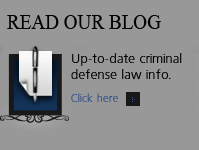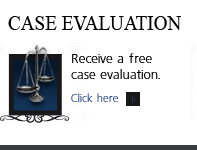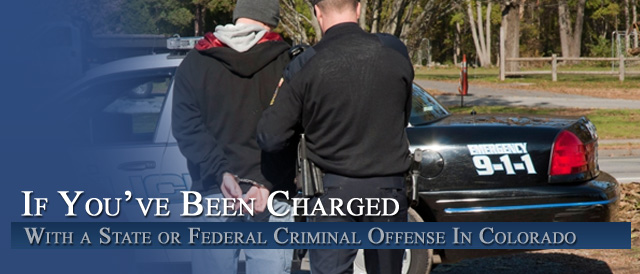

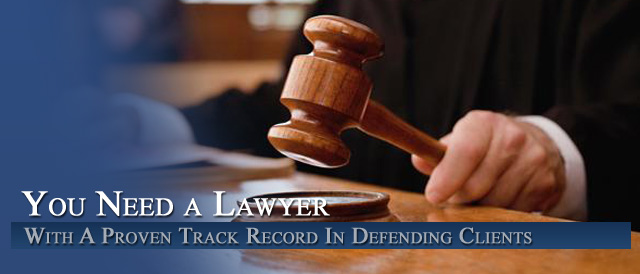
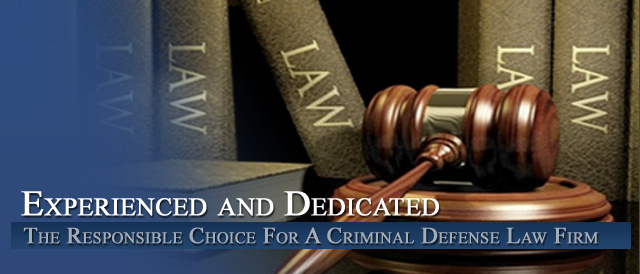
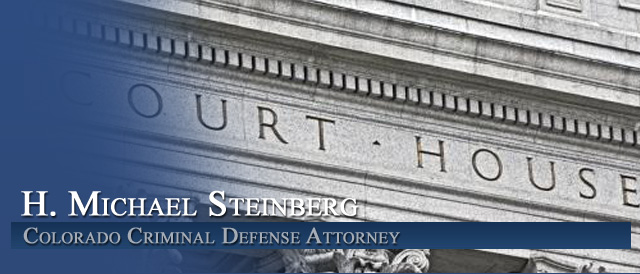
Developing a Defense Strategy
How criminal defense attorneys and defendants work together to create a defense strategy.
A defense strategy typically emerges as a defense lawyer finds out about the prosecution’s evidence and the defendant’s version of events. The process of developing a defense strategy is usually fluid, and it varies from one case to another. For example, the attorney’s tentative theory of defense will influence the topics the attorney asks about. The defendant’s answers to those questions may in turn affect the attorney’s defense strategy.
This does not mean that defendants and their attorneys collaborate to make up false stories. For a number of reasons, defendants usually benefit from telling their attorneys the truth as the defendants perceive it. However, multiple versions of truth can coexist in the defense of criminal charges. For instance, assume that a woman is charged with murdering her boyfriend. The “truth” may consist of the woman’s acting in self-defense, or it may consist of the boyfriend’s physical and verbal abuse of the woman in the months preceding the killing, or it may consist of both. A defense strategy is a product of a defendant and defense attorney fitting together the version of the truth that is most likely to produce a satisfactory defense outcome–a verdict of not guilty, a verdict of guilt of a lesser charge, or an acceptable plea bargain.
Truth is a Many-Splendid Thing
The fact that a story may be told in a variety of ways does not prevent each version from being accurate. By way of analogy, consider two maps of the United States, one in which the states are depicted according to geographical boundaries, the other in which the states are depicted according to density of population. The maps will look different, yet both will be accurate. It’s up to an attorney and a defendant to develop together the most legally helpful, accurate version of events relevant to the case. The result should have such characteristics as:
-
consistency with objectively verifiable evidence (for example, if the police found the defendant’s fingerprints at the scene of a crime, the defendant’s version should account for the presence of the fingerprints)
-
the potential to gain the sympathy of a judge or jury (for example, the defendant’s version may demonstrate that the he or she tried to withdraw from the criminal activity in question and prevent it from happening)
-
explaining why events took place as the defendant claims (for example, if the defendant claims to have been out of town on the date of the crime, the defendant’s version explains why).
As may be apparent, the account of events a defendant might tell spontaneously could omit these and other elements that are both accurate and helpful. This is why defendants and their attorneys have to work together to develop a version of events that will best benefit the defense.
Admissions and Denials of Guilt
While no two defendants will ever come up with a factually identical version of events, a defendant’s account almost always falls into one of three broad categories.
-
“Confession” story. Defendants who tell their lawyers confession stories admit that they did what the prosecution claims: “Yes, I did break into the house through a window and steal the computer.”
-
“Complete denial” story. Defendants who tell their lawyers complete denial stories assert that the prosecution’s claims are totally false. An “alibi” is a familiar type of complete denial story: “I was out of town with a friend when the burglary they say I committed took place. I have no idea what they’re talking about.”
-
“Admit and explain” story. This story falls between the “confession” and “complete denial” stories. Defendants who tell “admit and explain” stories agree that part of the prosecution’s claims are accurate, but assert legally critical differences: “I did go into the house and take the computer, but I went in through the front door with a key after the person who lived there gave me permission to borrow the computer.”
Creating the Defense Strategy
The ultimate defense strategy grows out of, but is not the same as, a defendant’s version of events, regardless of which of the three broad categories above it falls into. When formulating a defense strategy, an attorney also considers such factors as the reliability of defense and prosecution witnesses, community attitudes toward crime and the police, and a defendant’s “moral culpability.” A defense attorney uses such factors to develop a “theory of the case” that is consistent with provable facts and explains events in a way that favors the defense.
For example, assume that a defendant is charged with burglary. The prosecution’s evidence consists of the defendant’s confession to the police shortly after the defendant’s arrest, and an eyewitness who “is pretty sure that the defendant was among the burglars.” The defendant has told his attorney that a couple of the defendant’s friends planned and carried out the burglary; he had never been in trouble but stupidly went along with them so as to look good in their eyes; and that the police didn’t tell him that he had a right to remain silent or have an attorney present during questioning.
This is in essence a “confession” story. Nevertheless, the defendant and the defense attorney may adopt a defense theory that “overzealous police officers tried to paper-over weak eyewitness identification evidence by improperly extracting a confession from a naive suspect.” This theory is consistent with the defendant’s version of events, and it describes events in a way that favors the defense.
Pursuing this strategy, the defense attorney might file a pretrial motion seeking to bar the prosecution from offering the confession into evidence because the police failed to comply with Miranda procedures. In addition, the defense attorney might develop arguments that the eyewitness identification evidence is too weak to prove guilt beyond a reasonable doubt. The goal of this strategy may be either to achieve a not guilty verdict at trial, or to weaken the prosecutor’s case enough to persuade the prosecutor to agree to the defense’s desired plea bargain. Even if the defendant is convicted, the defense attorney may rely on the defendant’s lack of a prior criminal record, and the fact that he was a dupe who passively participated in a crime orchestrated by others, to argue for minimum punishment.
Coaching the Defendant
Defense lawyers have a duty to help defendants formulate the strongest defense story possible. To that end, lawyers can and do coach defendants in a variety of ways. For instance, attorneys can:
- use interviewing techniques that stimulate memory, such as asking defendants to relate events chronologically
- conduct interviews at the scene of important events, and
- ask defendants to write down in their own words their versions of important events.
In addition, attorneys can coach defendants by fully explaining the charges against them, and by imparting as much as is known of the prosecution’s story, before starting to question them about a version of events. Defendants need such information if they are to tell an accurate version that does not leave out information potentially helpful to the defense.
For example, assume that Rhoda is charged with the crime of “receiving stolen goods.” Before seeking to elicit Rhoda’s version, Rhoda’s lawyer ethically may tell her something along these lines:
“Rhoda, you’re charged with receiving stolen property. What that means in plain English is that you personally are not charged with stealing anything; the claim is that you obtained property even though you knew for a fact that someone else had stolen it. Now, I’d like to find out from you as much as you can tell me about what happened. But first let me tell you that the police report and a brief talk I had with the D.A. indicate that they claim you are a middleperson in a ring that deals in stolen watches. A couple of guys named Bernie and Chuck supposedly steal watches from warehouses, drop some of the cartons off in your garage, and you later distribute them to jewelry stores around town. They’ve got the names of some of the stores you supposedly deal with. Unless you have any questions, why don’t you tell me what you know about all this?”
Once Rhoda has this information, she will be in a good position to help her attorney by making sure she gives him whatever details she has that will shed a more favorable light on the facts being alleged by the prosecution.
|
How It’s Possible to Be Guilty and Still Come Out Ahead |
|
Another reason to tell attorneys the truth is that the truth may reveal the defendant to be guilty, but only of a less-serious offense. For example, a defendant’s truthful story may reveal that a defendant charged with assault with a deadly weapon is at most guilty of simple assault, a much less-serious crime. If the defendant lies and insists on complete innocence, the defense attorney may be unable to arrive at a realistic plea bargain. And if the case goes to trial, the defense attorney may not be able to ask the jury to convict on the lesser offense rather than the greater offense, because the defendant did not disclose any facts suggesting such a result. |
Other Articles of Interest:
- Tactics Defenses and Strategy
- Search Warrants!
- Defense Strategies
- A Colorado Criminal Lawyer On Designing A Defense Theory Of The Case
- Colorado Statute: Sexual Exploitation of a Child

